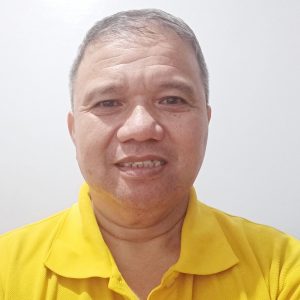
So annoying are politicians who never experienced the storm surge wrought by supertyphoon yolanda would have the temerity to come out in the limelight and hug top stories of mainstream media praising the victims’ resilient spirit amid the catastrophe. The statements were well crafted as if they truly cared for the victims of what was dubbed as the strongest typhoon in human history. Truth is, many of these politicians were far from the vicinity of the supertyphoon, hiding in the safety of their luxurious abode while the people living along the path of the supertyphoon could not leave their homes for lack of capacity to relocate or for the ill-advised decision to cling to their homes and livelihood not having a clear idea of what a storm surge is.
The warning was loud and clear addressed to all and sundry but people did not understand the real danger of the situation. Most people took the warning from their past experience of strong typhoons that hit their place, most bringing strong winds and heavy rains that could be evaded upon its onslaught. Such was the reason why they opted to cling to their residences, trying to protect their homes, belongings and animals which were part of their lives. Some old folks could recall strong typhoons all their lives but nothing was of the magnitude that they are about to be hit in the wee hours of November 8, 2013 exactly a decade ago. The only idea the old folks have in memory are those of tidal waves they learn by radio broadcasts hitting other places.
The hours that strong winds lambasted the homes, peoples and communities in the darkness of dawn was a horrible experience for young and old, including children who were unaware of the risk to their limb and life while in the embrace of their frightened parents. It was a dawn in total cold and darkness and electric power was down even before midnight when the supertyphoon begun pummeling the homes and peoples along its path. The hours that led into the break of daytime were so horrendous that people were caught in high waters as they left their homes, belongings and everything they thought were valuable to them, running to safer grounds or even swimming in uncertain directions just to save their lives.
It took several days of surviving without food or even safe drinking water as deep wells that used to be sources of community drinking water got salinated by sea water that mixed with groundwater. It took several days before relief operations reached the victims. Local governments and non-government organizations that were not affected by the calamity responded to provide food and medicine for the victims. The assistance from church and international non-government organizations focused on relief to recovery until such time that people gained access to markets to buy food.
In the days that followed, assistance were in the form of livelihood and housing. The initial agreements among donors where this writer had the opportunity to be part of the discussions at the provincial and diocesan levels, was to ensure that there is no duplication of assistance. Such policy was followed more on the breach than in the compliance as politicians, chiefly in the municipal and barangay levels, took the assistance as tools for political aggrandizement. They held people in need at their mercy, the livelihood and houses being used as tools for political patronage. Many of the real needy were delisted when identifies as not supporting the political plans of mayor or barangay chairperson. The housing projects of government were below standards as reported by the beneficiaries who are forced to spend more just to make their housing unit livable.
A decade after, politicians are still using the supertyphoon yolanda housing projects as tools for their future political ambitions. Many of those worthy to be granted housing units were deleted from the list of housing beneficiaries for political reasons. Unfortunately, the chosen few who are close to the powers that be, were awarded more than one unit of housing. In some cases, well to do families who have businesses, employment and vehicles, are given priority in the distribution of housing units.
True, the poor and unlucky people who do not have the connection to obtain a housing unit are the real resilient people who survived by their own grit, industry and perseverance to stand the test of time. They survived on their own despite the lack of assistance for livelihood and housing chiefly because of politicians who are thick faced to talk about . . . resilience?
comments to alellema@yahoo.com



